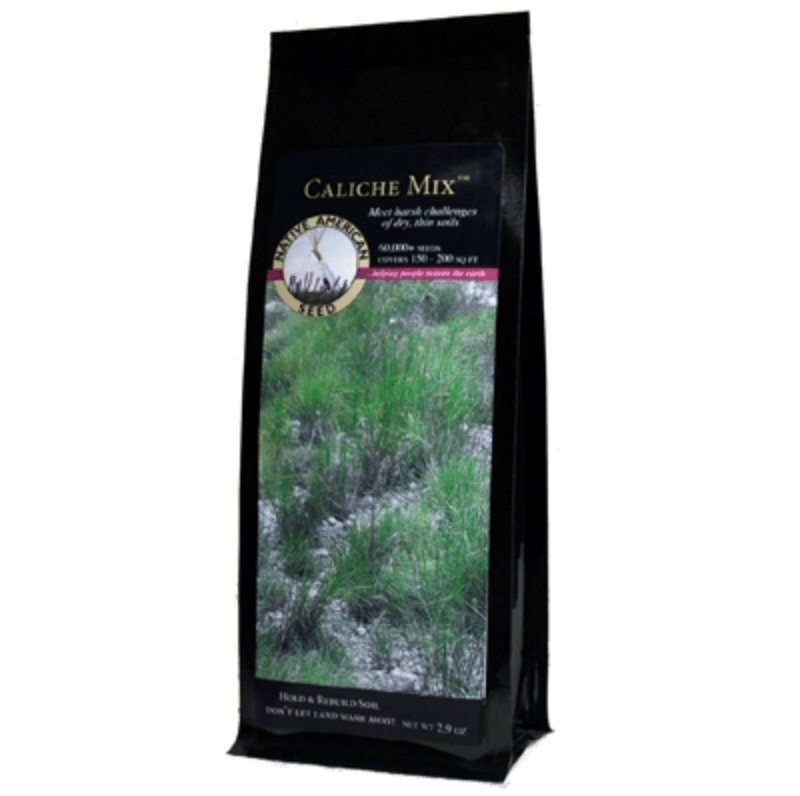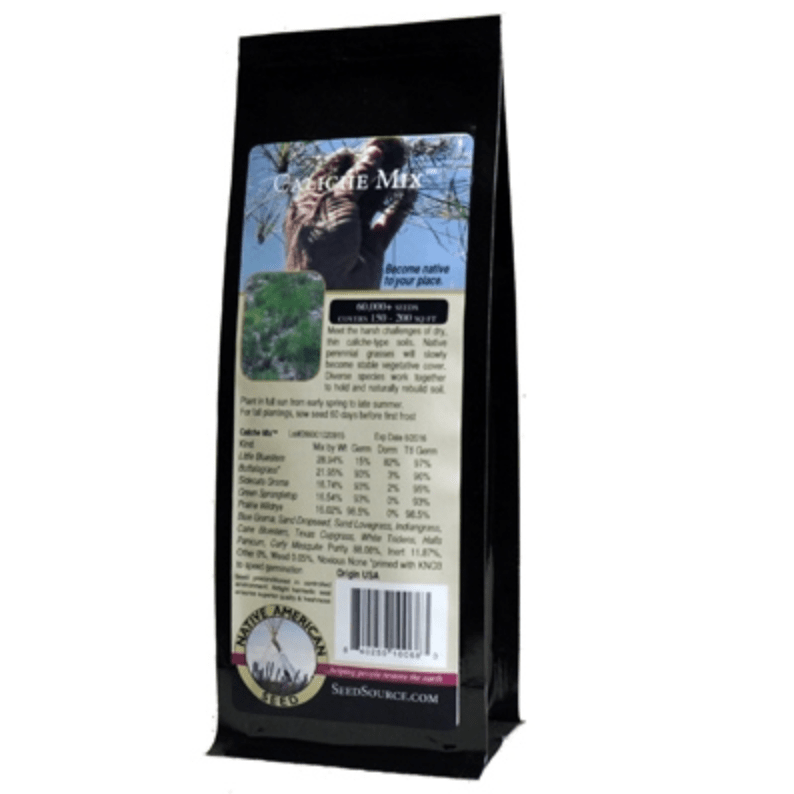Caliche Mix 2.9 oz
- Shipping Available
- Low stock - 2 items left
- Backordered, shipping soon
Meet the harsh challenges of dry, thin caliche-type soils. Native perennial grasses will slowly stabilize vegetative cover. By planting in early spring, you use natural rainfall to sprout the seeds. These natives should reach maturity in three growing seasons. Bronze, red, and golden-colored seed heads during the fall are a breathtaking addition to your native landscape. Special consideration should be given to erosion control, soil organic matter, and seed-to-soil contact.
Caliche Mix can be planted in an extensive geographic range not necessarily limited to areas dominated by calcareous (limestone-based) soil types. It was designed as a cost-effective solution for those sites that have undergone extensive disturbances. Generally, these include nearly bare, highly compacted, and nutrient-poor soils in Texas's western portions. Exposed subsoil or artificial berms, slopes, dykes, roadways, etc. also qualify. These problems are more comprehensive than in Central and West Texas. They tend to follow us everywhere we go.
The species work together to hold down and gradually and naturally rebuild the soil. Over time, the apex species will become dominant. When it has to work, contractors have come to rely on Caliche Mix to help solve their most challenging landscape restoration problems.
2.9 oz covers 200 sq ft
| Contains: | (100% native seed, no fillers) |
| Blue Grama Buffalograss Green Sprangletop Indian grass Little Bluestem Prairie Wildrye Sand Lovegrass |
Sideoats Grama Sand Dropseed Texas Cupgrass Cane Bluestem Curly Mesquite White Tridens Hall's Panicum |
Height: 0.3’-1'
Spread: 1’-2'
Bloom: April-September
Light: Full Sun, Part Sun
Water: Low, Medium
Zone: 4, 5, 6, 7, 8, 9
Origin: North America
Deer Resistant: No
Spring Shipping:
Orders are shipped within 7-10 business days. We will email you if there are expected delays.
When you order plants from our nursery, you can expect them to arrive in the best possible condition. Our team carefully packs each order using sturdy, biodegradable packaging materials.
Your plants' appearance may vary depending on the season and their current growth stage. We may cut back the leafy growth of some plants to prepare them for shipment and transplanting.
5 Gallon and Up: Any plant purchased to ship over 5 Gallons will be shipped bare root. This means we will remove the plant from its original pot, remove the soil surrounding the roots, and wrap the roots with a biodegradable plastic bag. This reduces weight and the likelihood of damage during shipping.
Once your plants arrive, it is essential to plant them as soon as possible. This will help them rebound and thrive. If you cannot plant immediately, water regularly and keep the roots off heat-conducting surfaces.
Newly transplanted plants often require more water until their roots are well established. Plan to water them 1-3 times weekly for the first few months.














